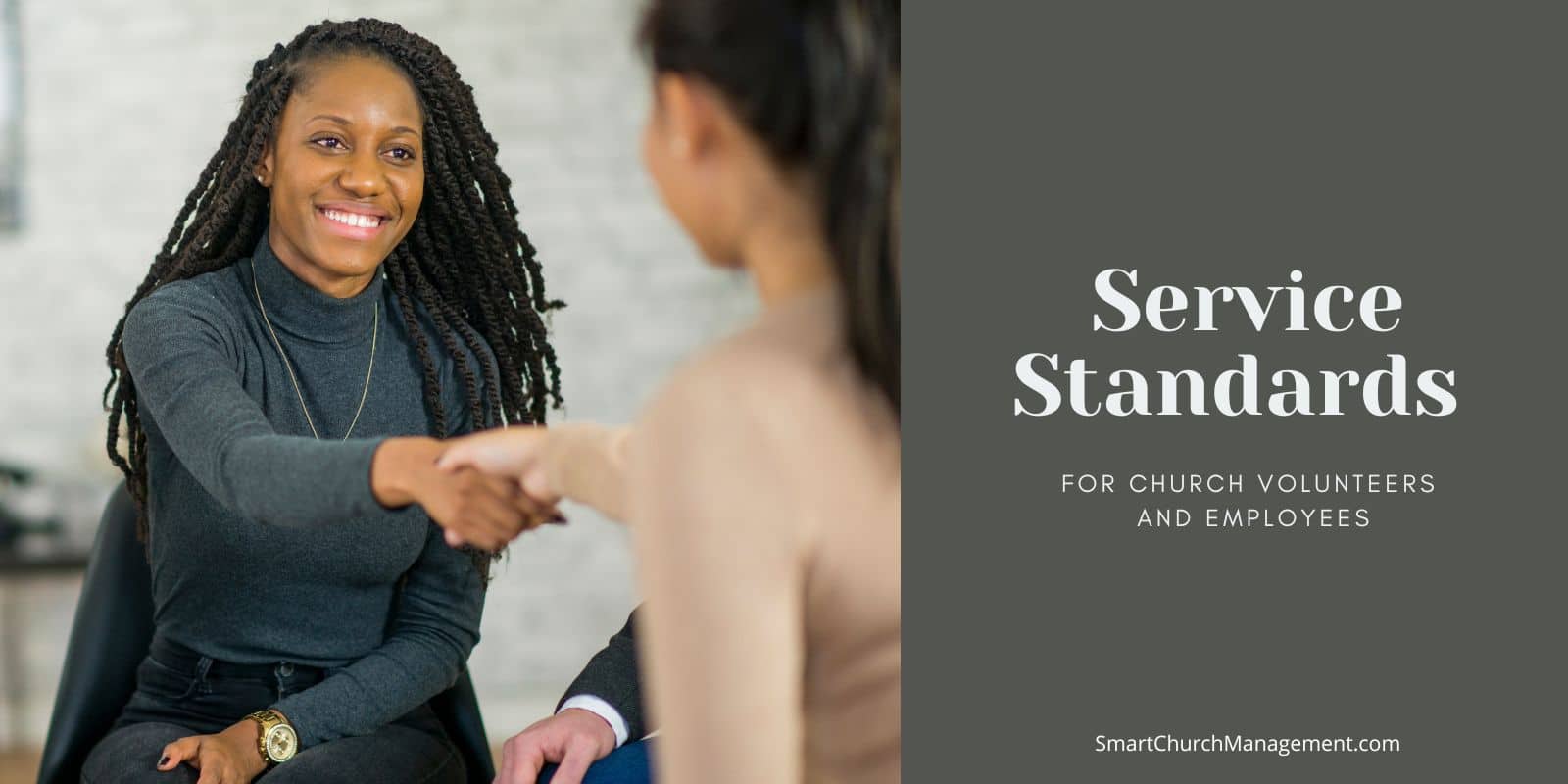Estimated reading time: 6 minutes
I don’t know about you, but I always find it refreshing to encounter an organization that provides an over-the-top service experience.
These great experiences create that wow moment that makes you want to maintain the relationship with that service provider.
Those wow moments can result from an employee who goes out of their way to escort you to a location in the store to find an item you were looking for, or perhaps a waitress who chases you to your car to deliver the credit card that you left, or maybe the physician who calls you late after a long day to check on you.
These kinds of service experiences foster great relationships between those providing the service and those on the receiving end.
The Church and Service
Churches are unique in that what they do is the very foundation of service. They help people.
Churches do this by caring for hurting people and providing programs that facilitate spiritual development.
These processes are facilitated by church employees along with an army of church volunteers who do the work of the ministry.
They are the hands and feet that touch the lives of each other, visitors, and those within their communities.

In the business community, organizations incorporate service standards into their training programs to ensure an understanding of behavior expectations, consistency in practice, and a commitment to providing the best possible service experience for those who receive their products and services.
It is the culture of these organizations that supports these standards of excellence, and employees understand the pivotal role they play in providing that service and support.
Providing a great church experience for visitors and members is critical to church credibility and growth.
It has been said that a visitor decides to attend a church long before the sermon is preached.
It is the experience that begins when they pull their car onto the church campus.
Taking the time to conduct service training for church employees and volunteers prepares them to provide a great church experience.
So, how does the church create these friendly and welcoming environments?
First, there needs to be a church culture that provides the support and training for creating extraordinary experiences.
This begins at the highest level of leadership and is carried throughout the ranks of employees and volunteers.
One step in the process is to create standards of service that are communicated, trained, and monitored to hold people accountable.
These standards of expected behaviors should be developed at the highest leadership level, demonstrated by church leaders, and developed into training for employees and volunteers.
Church Standards of Service Commitment
Guests, Members, and Volunteers (external customers)
- We will greet our guests, members, and each other courteously and professionally.
- We will listen effectively to our customer’s requests and promptly take the necessary actions to assist them. We will keep our customers informed of unexpected service delays.
- We will inform our customers of the normal process time when they can expect completion and any delays that may arise.
- We will touch base with our customers to update them on where we are in the process.
- We will respond to website questions/requests within 24 hours during regular business hours.
- We will respond to applicants (employees/volunteers) within 24 hours of normal process time to let them know when they can expect completion and any delays that may arise.
- We will finish our encounters with our customers in a courteous and professional way.
Church Employees and Volunteers (internal customers)
- We will interact with each other courteously and professionally.
- We will inform our internal customers of the normal process time when they can expect completion and any delays that may arise in the process.
- We will touch base with our internal customers daily, either by email or phone, to update them as to where we are in the process.
- We will work to resolve issues with coworkers and other departments by discussing problems directly and working toward agreed-upon solutions.
- We will be considerate, cooperative, and helpful to every staff member to ensure quality services.
- We will hold ourselves and each other accountable for addressing inappropriate comments and behavior.
Telephone Etiquette
- When at our desks, we will answer the phone within two rings.
- We will identify ourselves when we answer the phone.
- We will listen to the caller’s request and assist the caller accordingly.
- If we cannot assist the caller, we will direct the call to the appropriate person. Before transferring the call, we will obtain the caller’s permission and provide the caller with the name and extension number of the person who will be helping the caller.
- We will obtain the caller’s permission before placing the call on hold by asking and waiting for a response before initiating the hold function.
- We will end the conversation courteously and professionally by thanking the caller. We will wait for the caller to hang up before we do so.
- We will notify our customers that someone is unavailable by saying, “He/She is unavailable. Is this an urgent issue, or may I take a message?”
Voice Mail
- We will respond to voice mails within 24 hours during regular business hours.
- We will update our voicemail greeting, advise callers when we will be out of the office for an extended period of time (half a day or longer), and inform callers when we will return and who they may contact with questions (if applicable).
- We will respond to emails within 24 hours during regular business hours.
- We will update our email notification message when we will be out of the office for an extended period of time (full day or more). We will indicate our expected return date and a contact person (if applicable).
General
- We will strive to exceed the expectations of all of our customer groups (guests, members, volunteers, and employees).
- We will work to anticipate the needs of those we serve by proactively working to meet their needs.
- We will hold ourselves and each other accountable for our service commitment.
- We will be conscious of our communication style (ie; audible voice, eye contact when speaking to someone, tone of voice) and communicate in a professional manner.
- We will make a conscious effort to compliment coworkers when their actions comply with these standards.
These are merely examples of what your standards can be. The goal of this exercise is to communicate the kinds of responses you would like your employees and volunteers to demonstrate while representing the church.
You can access an editable copy of these standards of service here.
Once these service standards are created, they should be developed into training for employees and volunteers.
Ask employees and volunteers to commit to these standards. After everyone has been trained, conduct ongoing reminders of the importance of adhering to the standards to ensure consistency in practice.
Most people come to work (volunteer or paid) to do a good job.
However, we as church leaders need to help them understand our behavior expectations so they can be free to do the ministry’s work in an excellent and consistent way. That is what service standards are all about!
Have you developed service standards for your ministry?
We Have Done The Work For You!
Explore our growing library of forms, documents, and job descriptions!



